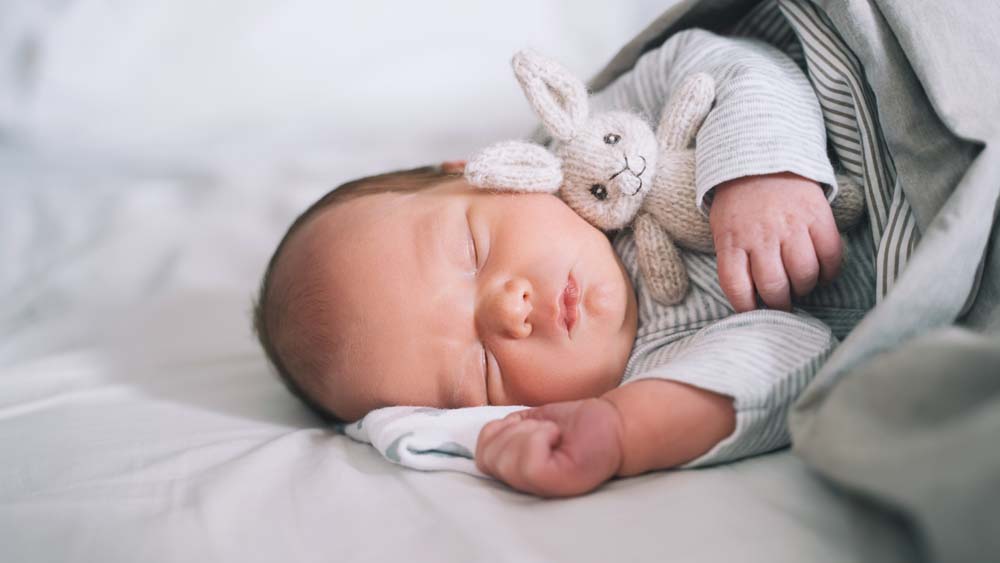When it comes to newborn and baby sleep, navigating through various stages while ensuring safety and comfort can be daunting for new parents. Here's a comprehensive guide to help you understand the sleep needs of your newborn, along with practical tips to improve sleep quality for your baby.
Understanding Newborn Sleep
- Sleep Duration: Newborns typically sleep about 14 to 17 hours over a 24-hour period. This sleep is not continuous—expect frequent awakenings as their sleep cycles are shorter.
- Feeding Needs: Due to their small stomachs, newborns require feeding every 2 to 4 hours, which impacts their sleep patterns. Differentiating between hunger-related cries and other types of distress is crucial for timely feedings.
- Development of Sleep Patterns: Initially, newborns spend more time in active REM sleep, leading to more frequent awakenings. Over time, they develop more regular sleep patterns and longer sleep durations.
Sleep Tips for Newborns
- Safe Sleep Practices: Always place your baby on their back to sleep, in a crib or bassinet free from loose bedding or soft toys, to reduce the risk of SIDS. Room-sharing without bed-sharing is recommended for at least the first six months.
- Comfort Measures: Gentle techniques like swaddling, massages, and the use of white noise can soothe your baby and enhance sleep. Swaddling is advisable until about 3 to 4 months of age or until the baby can roll over.
- Creating a Conducive Sleep Environment: Maintain a quiet, dimly lit environment to encourage sleep. Establishing a bedtime routine such as baths and feeding can also signal to your baby that it's time to sleep.
Sleep Needs by Age
- 0-3 Months: Newborns require about 14–17 hours of sleep distributed throughout the day and night.
- 4-11 Months: As babies grow, their total daily sleep requirement decreases slightly to about 12–15 hours, with longer nighttime sleep and fewer naps.
Establishing a Sleep Routine
- Introduce predictable bedtime routines around 3–4 months, but keep flexibility in mind as every baby is different. Consistency in the routine can help signal bedtime to your baby, making it easier to settle down.
When to Expect Longer Sleep Periods
- Most babies start sleeping longer stretches at night, around 6–8 hours, by 4 to 6 months. However, individual differences are normal, and some babies may take a little longer to reach this milestone.
Managing Sleep Challenges
- Crib Transition: If your baby is resistant to sleeping in the crib, gradually introduce the crib by placing them in it for naps or shortly after they fall asleep.
- Understanding Sleep Noises: Newborns often make noises like grunting or wheezing due to their immature respiratory systems. While usually normal, monitor for any signs of distress or unusual symptoms and consult a pediatrician if concerns arise.
Remember, the early months are as much a period of adjustment for you as they are for your baby. While establishing good sleep habits is important, being adaptable and responsive to your baby's needs is equally crucial. Ensure you also take care of your own sleep needs—parenting is much easier when you're not sleep-deprived.
Navigating baby sleep is a common challenge, but with the right practices and some patience, you'll find a rhythm that works for both you and your baby.

